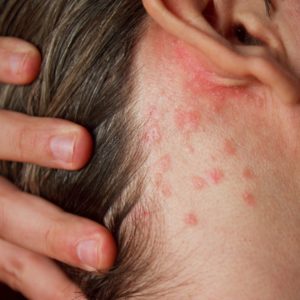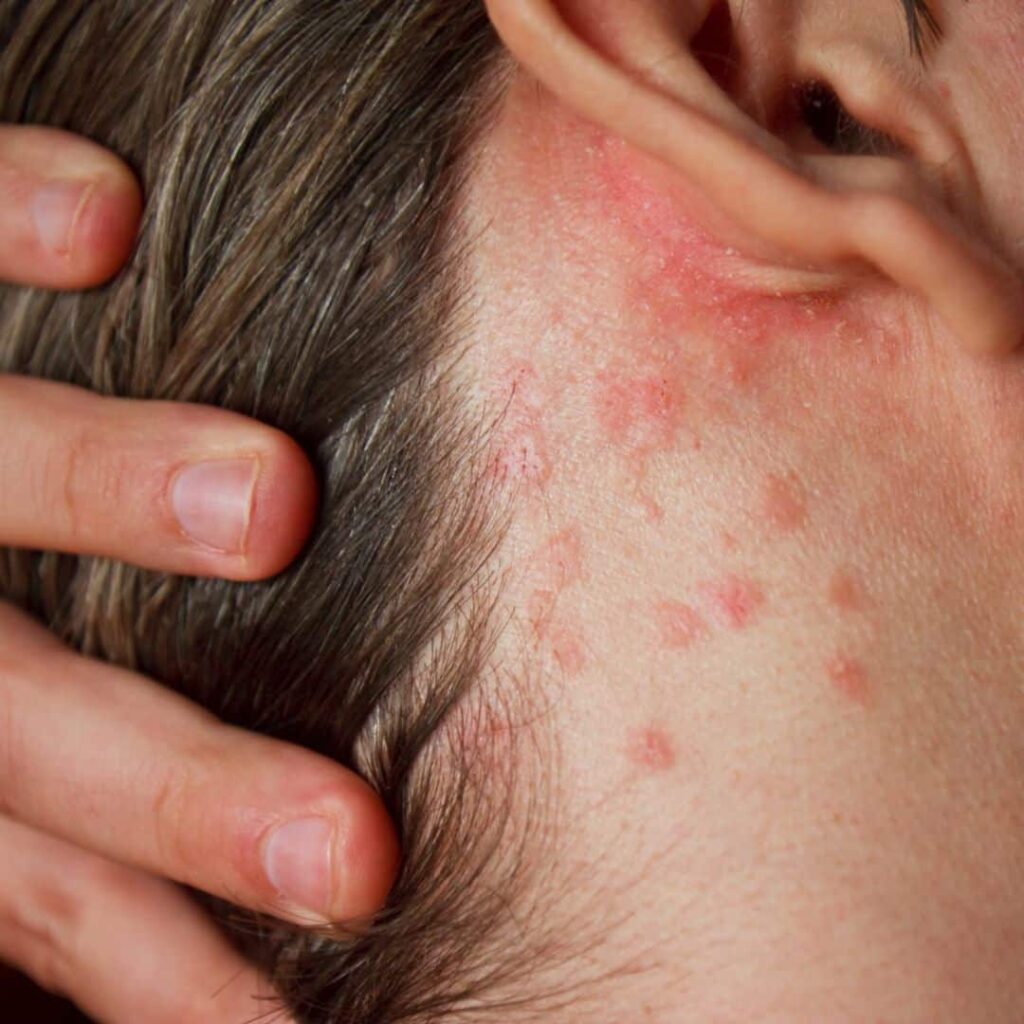
Unfortunately, the same is not true with various forms of dermatitis. These are chronic conditions that need to be managed, as they can’t be cured. Dr. Musick has extensive experience helping our patients manage their symptoms caused by the various forms of dermatitis. Here’s some more information about dermatitis.
What is dermatitis?
Dermatitis is a general term that points to a skin irritation that occurs in many forms. It usually is characterized by itchy, dry skin or a rash on swollen, reddened skin. Dermatitis may cause the skin to blister, ooze, crust, or flake off.
Although other people think the rashes on a person with a flareup must be contagious, they are not. But flareups can certainly make the person feel self-conscious about their appearance.
What are the types of dermatitis?
These are some of the common forms of dermatitis.
- Contact dermatitis— This skin reaction is an allergic reaction to substances such as chemicals, soaps, hair dyes, detergents, plants, and other items. Dr. Musick performs patch testing to identify the triggers.
- Atopic dermatitis— Also known as eczema, this is characterized by red, itchy rashes that occur where the skin flexes, such as behind the knees, in front of the neck, or inside the elbows. This usually begins in infancy.
- Seborrheic dermatitis— This causes scaly patches, red skin, and stubborn dandruff, usually on oily areas of the body, such as the face, upper chest and back. In infants this is known as “cradle cap.”
- Nummular dermatitis— This causes red, coin-shaped scaly skin on the torso, legs, and arms. It is more common in men between 55-65 in cold, dry climates.
- Follicular eczema— The affected skin thickens and develops bumps in the hair follicles. This is more common with African Americans and people with dark-brown skin.
Treatment
Dr. Musick helps our patients manage their flareups caused by the various forms of dermatitis. These usually involve prescription creams and sometimes oral medication.
Do you have the itchy rashes of dermatitis? You don’t need to go it alone. Call Dr. Musick at (618) 628-2588 to schedule an appointment.

